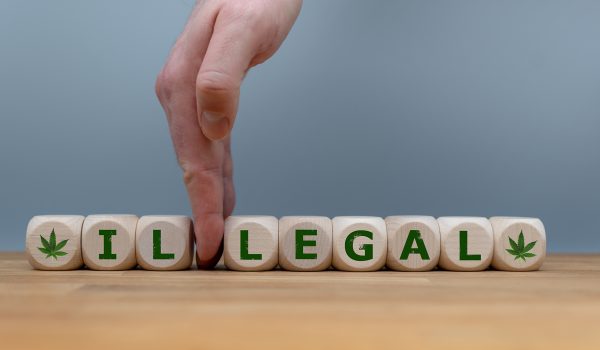The Food and Drug Administration (“FDA”) has just issued a batch of new warning letters and a consumer update that suggest the agency may be taking a more rigid position on the use of hemp-derived cannabidiol (“CBD”) in food and supplement products than the public and the hemp industry have previously understood.
When the 2018 Farm Bill was signed into law a year ago, there was widespread excitement among growers and processors of hemp and hemp products. The public demand for hemp products, especially those containing CBD, had been growing rapidly over the past several years, despite statements from the FDA that it did not regard CBD as a legal ingredient in conventional foods or supplements. The comments at the time the 2018 Farm Bill was signed from then-commissioner of the FDA, Dr. Scott Gottlieb, while reiterating the FDA’s basic position on the use of CBD as an ingredient, also seemed, however, to provide some hope that the agency would work with the hemp industry and CBD supporters to identify a “pathway” to the legal marketing of CBD products.
What’s different now?
While it could be argued that the new warning letters and the consumer update don’t say anything that is different in principle than previous FDA statements, the newer documents suggest that the agency may be staking out positions that will make it hard in the foreseeable future to come to a regulatory pathway for marketing CBD products that meets the demands of the public and the needs of the hemp industry.
The agency has been consistent over the past several years in focusing its enforcement attention on marketers of CBD products who make improper and illegal drug claims for their products. As a general matter, those marketers who position their products only as “wellness” products without any claims to prevent, cure or treat diseases have not been the focus of FDA enforcement actions. The new letters don’t represent a change in that respect, so far as we can tell, as all of the recipients were indeed making improper and illegal claims for their products. But it was some of the added comments from the FDA and what appears to be a change in emphasis that has some concerned.
There are two aspects of the recent FDA statements that seem of particular concern. First is what seems to be an exaggeration of potential safety issues with CBD that appear, based on current information, to exist only at very high levels of extended use. Second is the suggestion that the FDA is not inclined to give much weight to the safety information that has been provided so far by the hemp industry. From those comments comes the following conclusion:
The FDA is evaluating the regulatory frameworks that apply to certain cannabis-derived products that are intended for non-drug uses, including whether and/or how the FDA might consider updating its regulations, as well as whether potential legislation might be appropriate. The information we have underscores the need for further study and high quality, scientific information about the safety and potential uses of CBD (emphasis added).
This suggests a pre-disposition by the FDA to require substantial new studies before it is ready to move forward on any “pathway” to marketing CBD products. If so, then new guidance or regulations are a long way down the road.
There is risk, of course, in trying to read too much into the regulatory tea leaves, but there does seem to be enough in the recent FDA statements to create some concern. With the deaths and illnesses over the past several months that are apparently related to vaping, it is probably not surprising that the FDA is determined not to be pushed into permitting uses of CBD that might come back to bite the agency down the road.
But, while the agency’s job is to protect the public, is it appropriate for it to try to keep products from the public that might be beneficial, just out of an excess of caution? We’ve been through that routine before with dietary supplements and, notwithstanding repeated losses for the FDA in court, it took legislation to eventually force a pathway for those products. Just saying.
To make matters worse, recent consumer litigation filed against marketers of CBD products indicates that the plaintiffs’ bar thinks that it has found a new source of income based in part on the position that the FDA has taken with regard to the legality of CBD as an ingredient in conventional foods and dietary supplements. The longer the FDA takes to provide its regulatory pathway, the more the hemp industry is likely to see litigation like this.
In the meantime, what is a producer and marketer of CBD products to do? Here are some do’s and don’ts that might be helpful:
- Do be conservative if you are going to make wellness or structure/function claims.
- Do provide suggested usage directions and consider advising users not to exceed a specified amount of CBD per day from all sources.
- Do put warnings on your labels advising vulnerable populations to either avoid or seek a doctor’s advice before using.
- Don’t suggest that the product is appropriate for use by children.
- Don’t make structure/function claims for pet products.
- Don’t label or provide directions for your products that suggest a use that is anything other than ingestion (i.e., swallowing). According to the FDA, to be a food or supplement, a product must be ingested, not absorbed in the mouth.
- Double and triple check the CBD levels in your products to ensure that what you are disclosing on labels and websites is accurate.
Steve Ellcessor has many years of experience in the advertising, marketing and regulation of foods, dietary supplements, and cosmetics. He regularly advises clients on the labeling and marketing of hemp products and the issues related to the use of CBD in FDA-regulated products. For more information on this topic, please feel free to contact Steve at sellcessor@fbtlaw.com.

